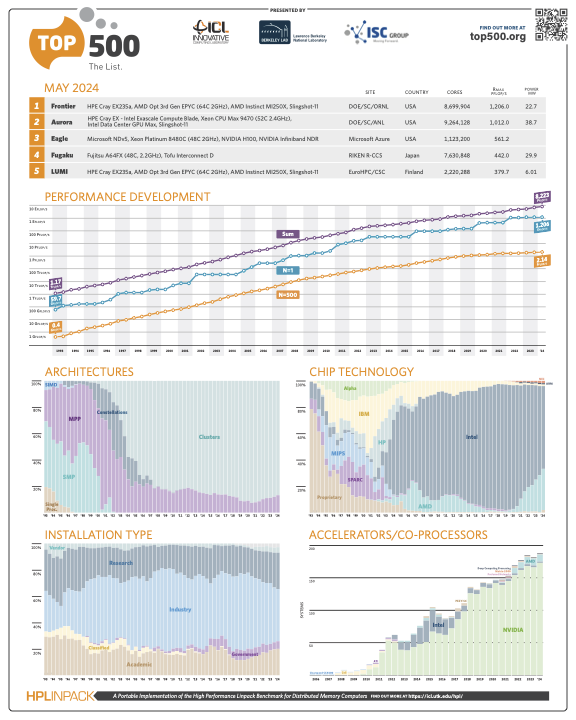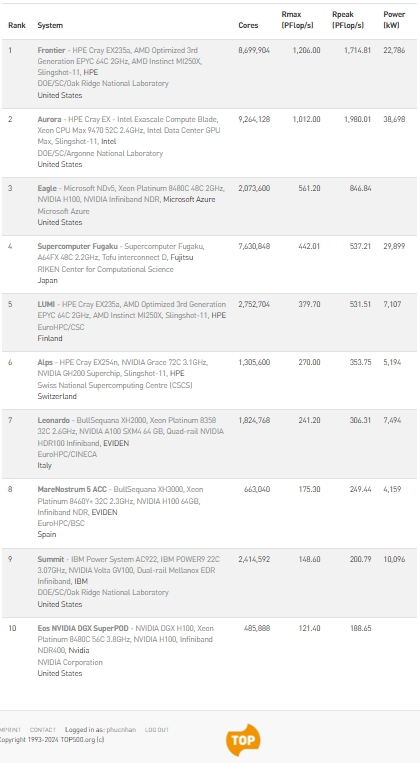Introduction to High Performance Computing (HPC)
What is High Performance Computing?
High-Performance Computing (HPC) refers to the use of powerful computational systems to process massive amounts of data and solve complex problems at incredibly high speeds. These systems, often comprising thousands or even millions of processor cores, work in parallel to perform tasks that would be impossible or too time-consuming for standard computers. HPC plays a crucial role in fields like scientific research, engineering, artificial intelligence, and data analysis by enabling real-time simulations, advanced modeling, and large-scale data processing. By aggregating compute, storage, and networking resources, HPC systems provide organizations and researchers with the computational power necessary to push the boundaries of innovation and discovery.
Supercomputers
Supercomputers are highly specialized, purpose-built machines designed to perform complex and large-scale computations at incredible speeds. Unlike regular computers, supercomputers consist of millions of processors or cores that work in parallel, allowing them to execute billions or even trillions of calculations per second (measured in FLOPS – floating-point operations per second). They have been integral to high-performance computing (HPC) for decades, solving problems in areas like climate modeling, scientific simulations, cryptography, and drug discovery.
Here are the current top supercomputers, with Frontier ranking as the most powerful according to data from June 2024:

Use Cases for HPC
High-performance computing (HPC) is used across a wide range of industries and research fields to tackle complex problems that require massive computational power. Some common use cases for HPC include:
Cloud Computing
HPC systems are used to optimize cloud computing infrastructure, enabling faster processing of data and applications in cloud environments.
Big Data
HPC accelerates the processing and analysis of large datasets, enabling organizations to extract valuable insights and make data-driven decisions.
Research
HPC supports scientific research by providing the computational resources needed to run simulations, model complex systems, and analyze experimental data.
Simulation & Design
HPC systems are used to simulate real-world scenarios, design new products, and optimize engineering processes in industries like aerospace, automotive, and manufacturing.
Optimization
HPC algorithms are applied to optimize complex systems, processes, and workflows, leading to improved efficiency, cost savings, and performance.
Forecasting
HPC is used for weather forecasting, financial modeling, and predictive analytics to make accurate predictions and plan for future events.
Healthcare, Genomics, and Life Sciences
HPC accelerates genomic sequencing, drug discovery, and medical research, leading to breakthroughs in personalized medicine and disease treatment.
Media and Entertainment
HPC powers special effects rendering, video editing, and content creation in the media and entertainment industry, enabling high-quality visuals and immersive experiences.
Banking and Finance Services
HPC is used for risk analysis, fraud detection, algorithmic trading, and portfolio optimization in the banking and finance sector to improve decision-making and reduce financial risks.
Government and Defense
HPC supports national security, defense simulations, cybersecurity, and disaster response efforts by providing the computational resources needed to analyze threats, model scenarios, and develop strategies.
Energy
HPC is used to optimize energy production, distribution, and consumption, enabling the development of renewable energy sources, smart grids, and energy-efficient technologies.
Automotive Industry
HPC accelerates vehicle design, crash simulations, aerodynamics modeling, and autonomous driving research in the automotive industry, leading to safer, more efficient vehicles.
Cybersecurity
HPC is used to detect and prevent cyber threats, analyze network traffic, and secure critical infrastructure, protecting organizations from cyber attacks and data breaches.
These are just a few examples of how high-performance computing (HPC) is transforming industries, driving innovation, and solving complex challenges across various domains. By harnessing the power of HPC systems, organizations and researchers can unlock new possibilities, gain deeper insights, and accelerate the pace of discovery and development.
